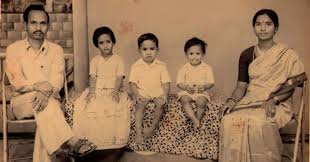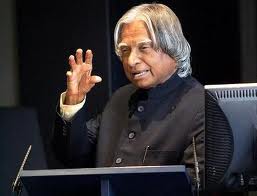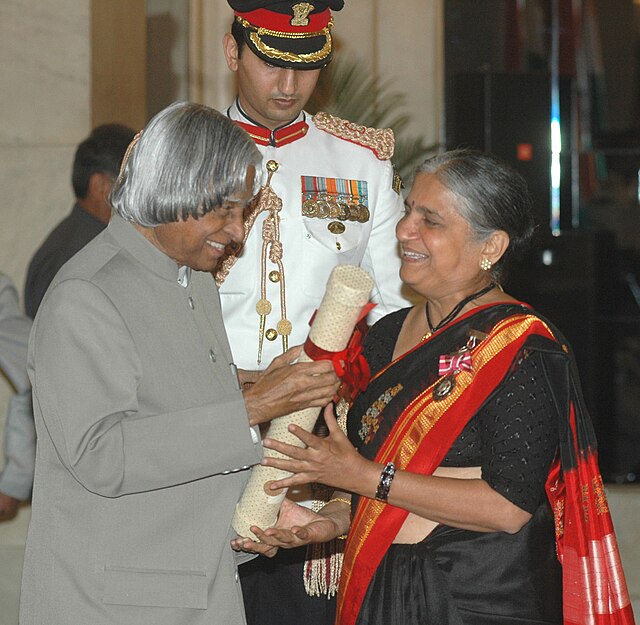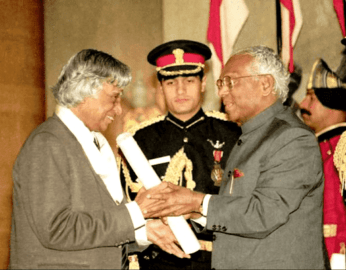Dr. APJ Abdul Kalam, fondly known as the “Missile Man of India,” was an exceptional scientist, visionary leader, and an inspiration to millions. From his humble beginnings in Rameswaram, Tamil Nadu, to his rise as the 11th President of India, his career was marked by an unwavering dedication to the nation. we”ll read how APJ Abdul Kalam’s Career Inspire a Nation to Dream Big.

Early Career and Education
Born on October 15, 1931, Dr. Kalam hailed from a modest Tamil Muslim family. Despite financial struggles, he was a diligent student with a keen interest in academics. After completing his degree in Physics at St. Joseph’s College, Tiruchirappalli, he pursued Aeronautical Engineering at the Madras Institute of Technology (MIT). Kalam financed his studies by working as a newspaper vendor, demonstrating his relentless spirit and determination.

Scientific Contributions and Achievements
Dr. Kalam began his professional journey at the Aeronautical Development Establishment (ADE) of the Defence Research and Development Organisation (DRDO). Later, he joined the Indian Space Research Organisation (ISRO), where he played a pivotal role in the development of the Satellite Launch Vehicle (SLV-III). This achievement made India self-reliant in launching satellites.

Key Achievements in Science and Technology:
- Satellite Launch Vehicle (SLV-III): Successfully launched the Rohini satellite in 1980, marking India’s entry into space technology.
- Missile Development: As the chief architect of India’s Integrated Guided Missile Development Programme (IGMDP), Kalam led the development of Agni and Prithvi missiles, earning him the title “Missile Man of India.”
- Pokhran-II Nuclear Tests: He played a significant role in India’s nuclear weapon tests in 1998, showcasing India’s defense capabilities to the world.
Dr. Kalam’s relentless efforts in advancing India’s space and defense technology significantly bolstered the country’s global standing.
Presidency: The People’s President
In 2002, Dr. APJ Abdul Kalam was elected as the 11th President of India, becoming the first scientist and bachelor to hold the position. During his tenure (2002–2007), he earned immense respect for his simplicity, humility, and connection with the masses.
Major Initiatives as President:
- Vision 2020: Dr. Kalam emphasized transforming India into a developed nation by 2020 through education, infrastructure, and technology.
- Interaction with Students: Known for his approachable nature, he frequently engaged with young minds, encouraging them to dream big and innovate.
- Focus on National Development: He championed projects aimed at empowering rural areas and enhancing India’s scientific capabilities.
His presidency left a lasting legacy of leadership rooted in service and inspiration.

Awards and Recognition
Dr. Kalam’s extraordinary contributions earned him numerous accolades, both nationally and internationally. Some of his most notable awards include:
- Bharat Ratna (1997): India’s highest civilian honor for his work in science and public service.
- Padma Vibhushan (1990): For his exceptional contribution to aerospace engineering and defense technology.
- Padma Bhushan (1981): For his service in ISRO and DRDO.
- Von Braun Award (2013): Presented by the National Space Society for his role in advancing space technology.
Dr. Kalam also received honorary doctorates from over 40 universities worldwide, reflecting his global impact.
Contributions to Education and Society
Beyond his scientific achievements and presidency, Dr. Kalam was a passionate educator and mentor. He believed that the future of India depended on empowering its youth through quality education and innovation.
Key Contributions in Education:
- Books and Writings: Dr. Kalam authored several books, including Wings of Fire, Ignited Minds, and India 2020: A Vision for the New Millennium, which continue to inspire millions.
- Teaching and Mentorship: After his presidency, he dedicated his life to teaching at institutions like the Indian Institutes of Management (IIMs) and Anna University.
- Focus on Innovation: He encouraged students to pursue careers in science, technology, and entrepreneurship to build a self-reliant nation.
Dr. Kalam’s vision extended beyond classrooms. He emphasized the role of education in uplifting underprivileged communities and bridging societal gaps.
Legacy and Inspiration
Dr. Kalam’s untimely demise on July 27, 2015, during a lecture at IIM Shillong, left the nation in mourning. Even in his last moments, he was engaged in his mission of inspiring the youth.
Enduring Legacy:
- His work in science and defense continues to propel India’s advancements.
- His books and speeches remain a source of motivation for countless individuals.
- Numerous institutions and scholarships have been established in his name to honor his contributions.
Conclusion
Dr. APJ Abdul Kalam’s life epitomized the spirit of service, innovation, and humility. From transforming India’s defense and space technology to inspiring generations as an educator and leader, his journey remains a beacon of hope for a brighter future. Dr. Kalam’s message is clear: with determination and hard work, any dream can be achieved. His legacy continues to inspire India and the world.
Learn more about APJ Kalam’s inpiring life- From Village Dreamer to ‘Wings of Fire’: What Made APJ Abdul Kalam India’s Missile Man?



